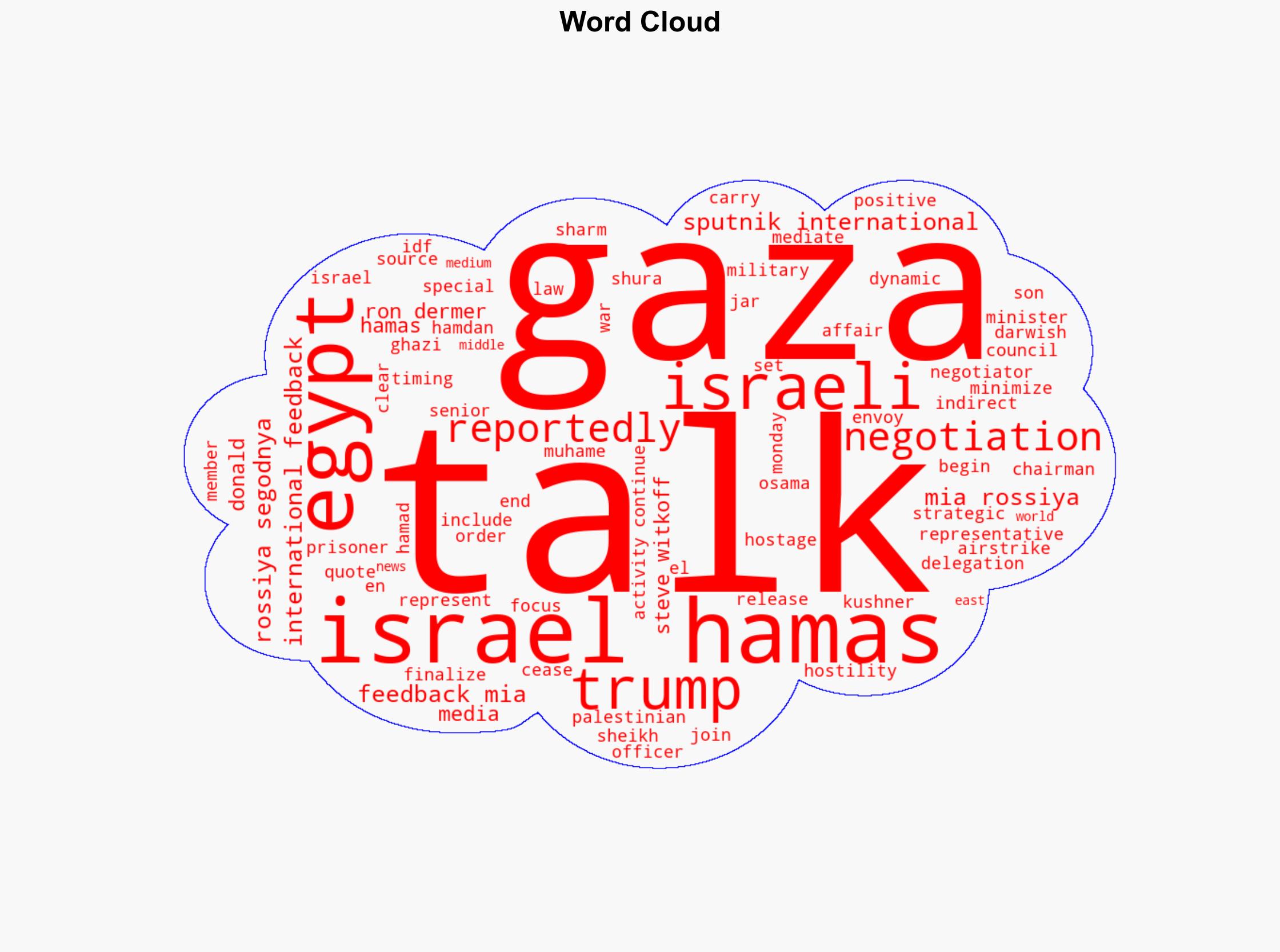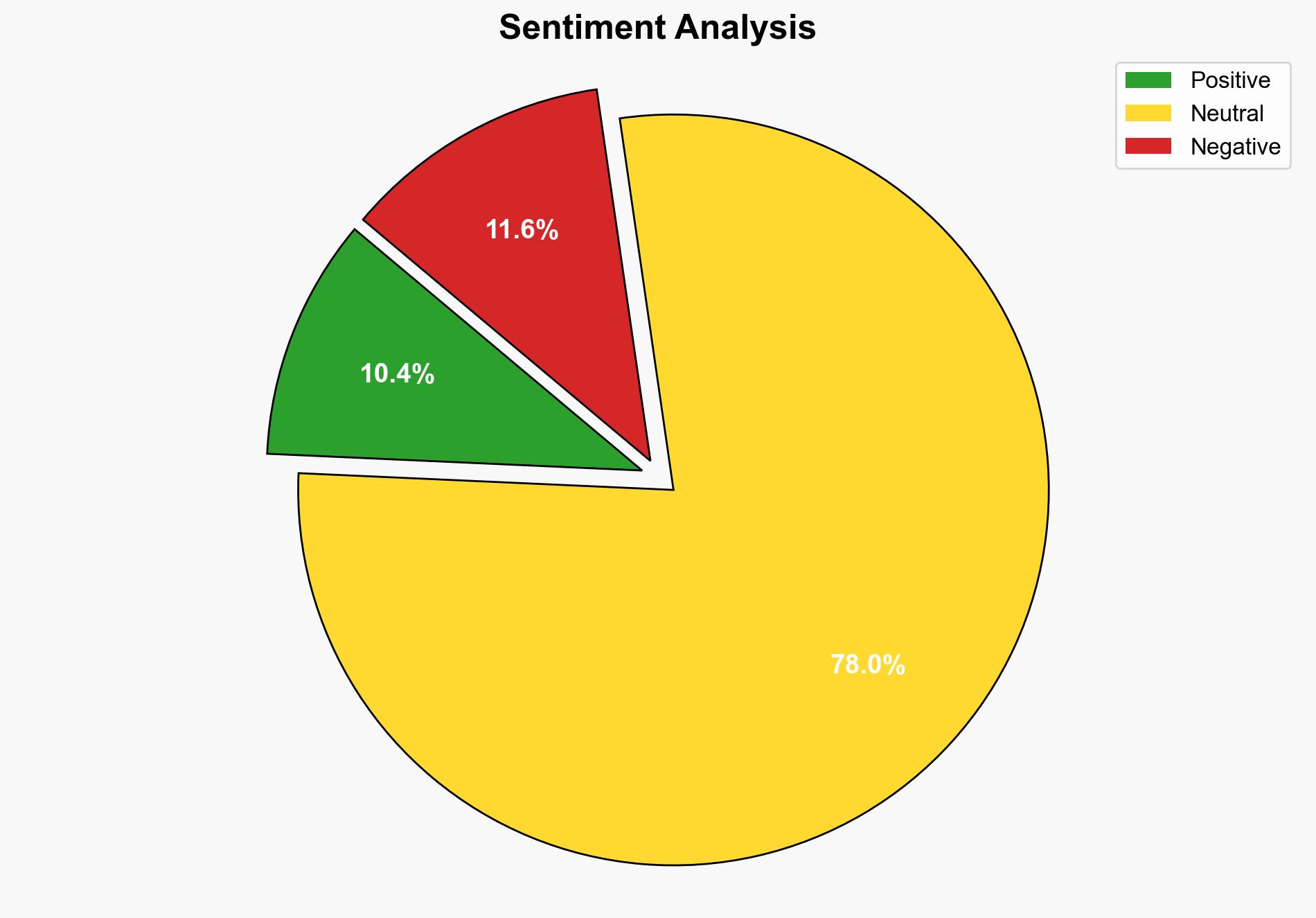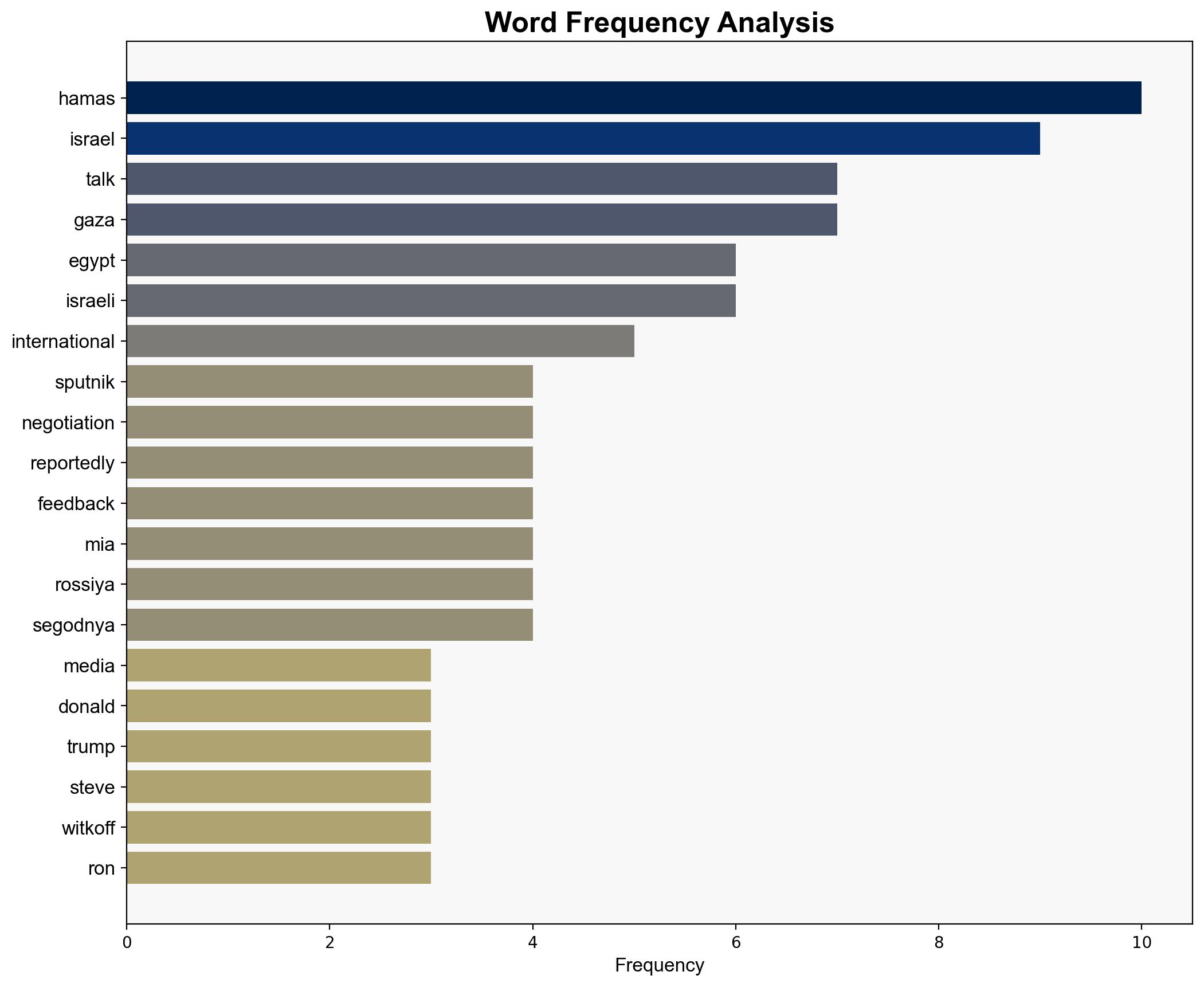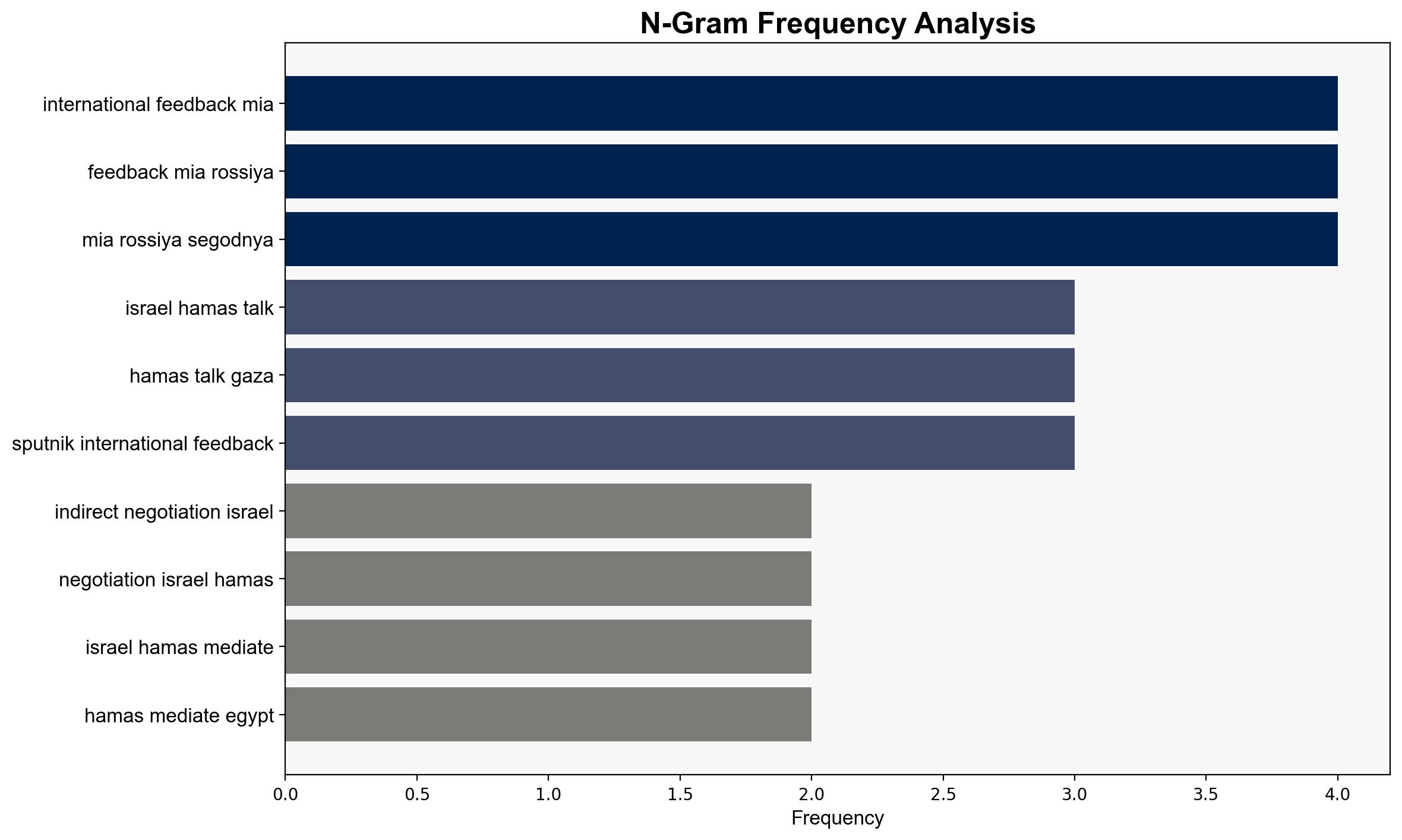Israel-Hamas Talks on Gaza Who Where When – Sputnikglobe.com
Published on: 2025-10-05
Intelligence Report: Israel-Hamas Talks on Gaza Who Where When – Sputnikglobe.com
1. BLUF (Bottom Line Up Front)
The most supported hypothesis is that the Israel-Hamas talks, mediated by Egypt, are a genuine attempt to de-escalate the conflict in Gaza, with a focus on prisoner exchanges. Confidence level: Moderate. It is recommended to monitor the talks closely for any shifts in negotiation dynamics and prepare contingency plans for potential escalation if talks fail.
2. Competing Hypotheses
1. **Hypothesis 1**: The talks are a genuine effort to negotiate a ceasefire and exchange prisoners, facilitated by Egypt, with the involvement of key international figures to ensure credibility and pressure both sides toward a resolution.
2. **Hypothesis 2**: The talks are a strategic maneuver by one or both parties to buy time, reduce international pressure, or reposition forces, without genuine intent to reach a sustainable agreement.
Using ACH 2.0, Hypothesis 1 is better supported by the presence of high-level delegates and the reported focus on specific negotiation outcomes (hostage and prisoner exchanges). Hypothesis 2 is weakened by the reported orders to minimize military activity, suggesting a genuine interest in de-escalation.
3. Key Assumptions and Red Flags
– **Assumptions**: The presence of high-level negotiators implies serious intent. Media reports accurately reflect the negotiation agenda.
– **Red Flags**: The continuation of airstrikes by the IDF, despite talks, could indicate a lack of commitment. The involvement of figures like Donald Trump and Jared Kushner may introduce biases or external agendas.
– **Blind Spots**: The internal political dynamics within Hamas and Israel that could influence negotiation outcomes are not detailed.
4. Implications and Strategic Risks
– **Implications**: Successful talks could lead to a temporary ceasefire and prisoner exchange, reducing immediate tensions. However, failure could escalate hostilities, drawing in regional actors and complicating geopolitical alliances.
– **Strategic Risks**: Prolonged negotiations without tangible outcomes could lead to increased skepticism and hardening of positions, potentially triggering a new cycle of violence.
5. Recommendations and Outlook
- Engage in diplomatic back-channel communications to support the mediation efforts and ensure transparency in the negotiation process.
- Prepare for scenario-based outcomes:
- Best Case: Successful ceasefire and prisoner exchange, leading to longer-term peace talks.
- Worst Case: Breakdown of talks and resumption of full-scale hostilities.
- Most Likely: Partial agreement with continued low-level tensions.
6. Key Individuals and Entities
– Ron Dermer
– Ghazi Hamad
– Osama Hamdan
– Muhame Darwish
– Steve Witkoff
– Jared Kushner
– Donald Trump
7. Thematic Tags
national security threats, regional focus, conflict resolution, diplomatic negotiations




